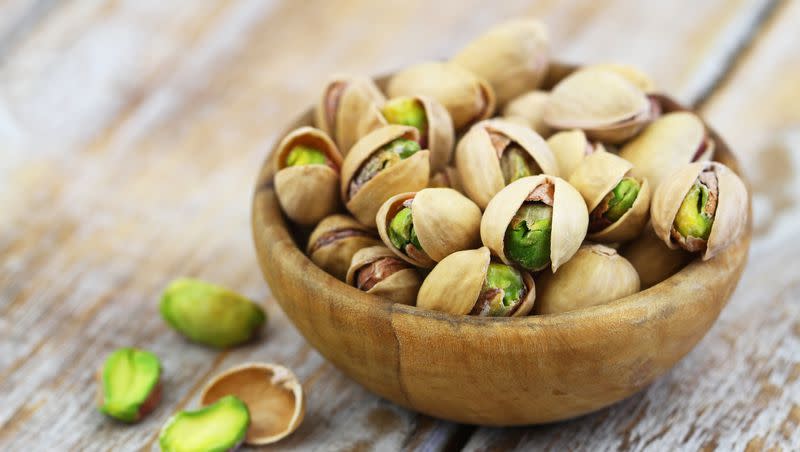Why young adults should eat tree nuts and what not to say if your child has obesity

Healthy eating is a weighty issue in the United States, where more than 14 million U.S. children have obesity, which means they are 20% or more above their recommended weight and could face serious health challenges.
And experts note that chronic conditions like diabetes and heart disease that used to appear in late middle age are beginning to show up much sooner, even in young adulthood, as an increasing number of people are overweight or obese.
This week’s health news breaks down some advice for helping kids who are overweight and suggests a simple addition to young adults’ snacks that can improve health.
What not to say if your child is overweight
The American Academy of Pediatrics recently addressed the issue with new guidelines for healthy weight management that focus on change that can be maintained over a lifetime.
The Pediatric Patients Page in the journal JAMA Pediatrics recently offered advice to parents on how to address the issue to help their kids. A trio of physicians from the Department of Pediatrics at Atrium Health Wake Forest Baptist wrote that parents are influential role models for healthy habits. But there are warnings, too, about how the issue should not be addressed.
Wrote Dr. Gail M. Cohen, Dr. Callie L. Brown and Dr. Joseph A. Skelton, “Obesity is a chronic disease and is not from a lack of willpower or motivation. It is the result of genetic, social and environmental factors. Social drivers of health contribute as well, including poverty, racism, weight bias and discrimination, and lack of access to healthy foods and physical activity opportunities.”
Their advice to parents:
Talk to the child in an age-appropriate way. Don’t leave them to struggle on their own.
Make changes as a family, instead of singling out the child who is overweight for change, which can be harmful.
Be consistent when it comes to snack and meal times and prioritize adequate sleep.
“Keep weight talk out of usual conversation.” They note that comments made about a child’s eating habits can backfire. Instead, model the health behaviors you hope to instill, since children mimic what they see.
Make sure your child feels loved. Over-focusing on weight can hamper relationships.
They note that tackling a child’s weight challenge may require medication, behavior changes or even weight-loss surgery. But there are potentially serious health effects to ignoring it.
Young adults should eat tree nuts
A Vanderbilt University-led study in the journal Nutrients recommends eating tree nuts every day to reduce the risk of metabolic syndrome, which can lead to diabetes and cardiovascular disease.
A news release on the research says that such daily consumption improves waist circumference, lipid biomarkers and/or insulin levels in young adults, without requiring them to restrict calories.
The randomized study included 84 men and women ages 22-36, most of them overweight or obese. They also had a risk factor for metabolic syndrome, such as abdominal obesity, elevated triglycerides, low HDL cholesterol (often called good cholesterol), high blood pressure or elevated blood sugar.
Each was assigned to eat either one ounce of mixed unsalted tree nuts or an ounce of a carbohydrate-rich snack twice a day. The two snacks provided the same number of calories, protein, fiber and sodium for the 16-week study.
Females who consumed tree nuts had reduced waist circumference and typically lost intra-abdominal fat, compared to those who ate the other snack. Males who ate tree nuts saw a decrease in blood insulin levels. For both men and women, triglyceride levels dropped in the tree nut group.
Heidi J. Silver, research professor of medicine at Vanderbilt University Medical Center, said they saw a 67% reduction in the metabolic syndrome score in females and a 42% reduction for males.
“We know that snacking contributes almost 25% of total daily calories in young adults in the U.S.,” Silver said. “Substituting typical high carbohydrate snacks with tree nuts (almonds, Brazil nuts, cashews, hazelnuts, macadamias, pecans, pine nuts, pistachios and walnuts) would likely have a positive impact in reducing the risk of metabolic syndrome and its consequences in this age group.”

